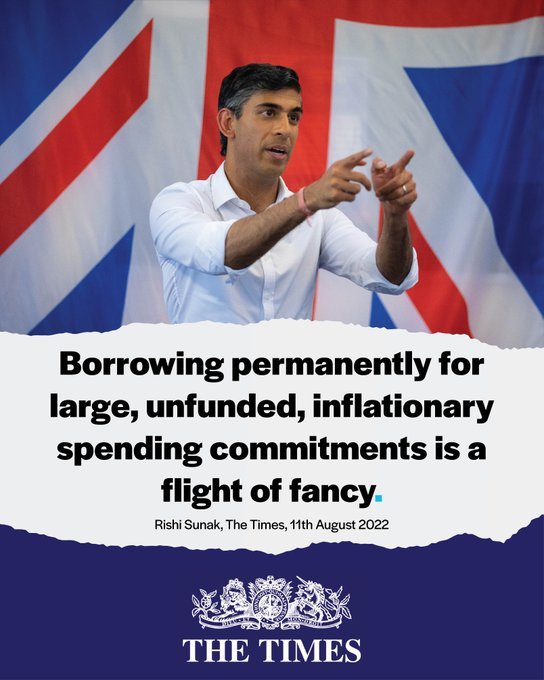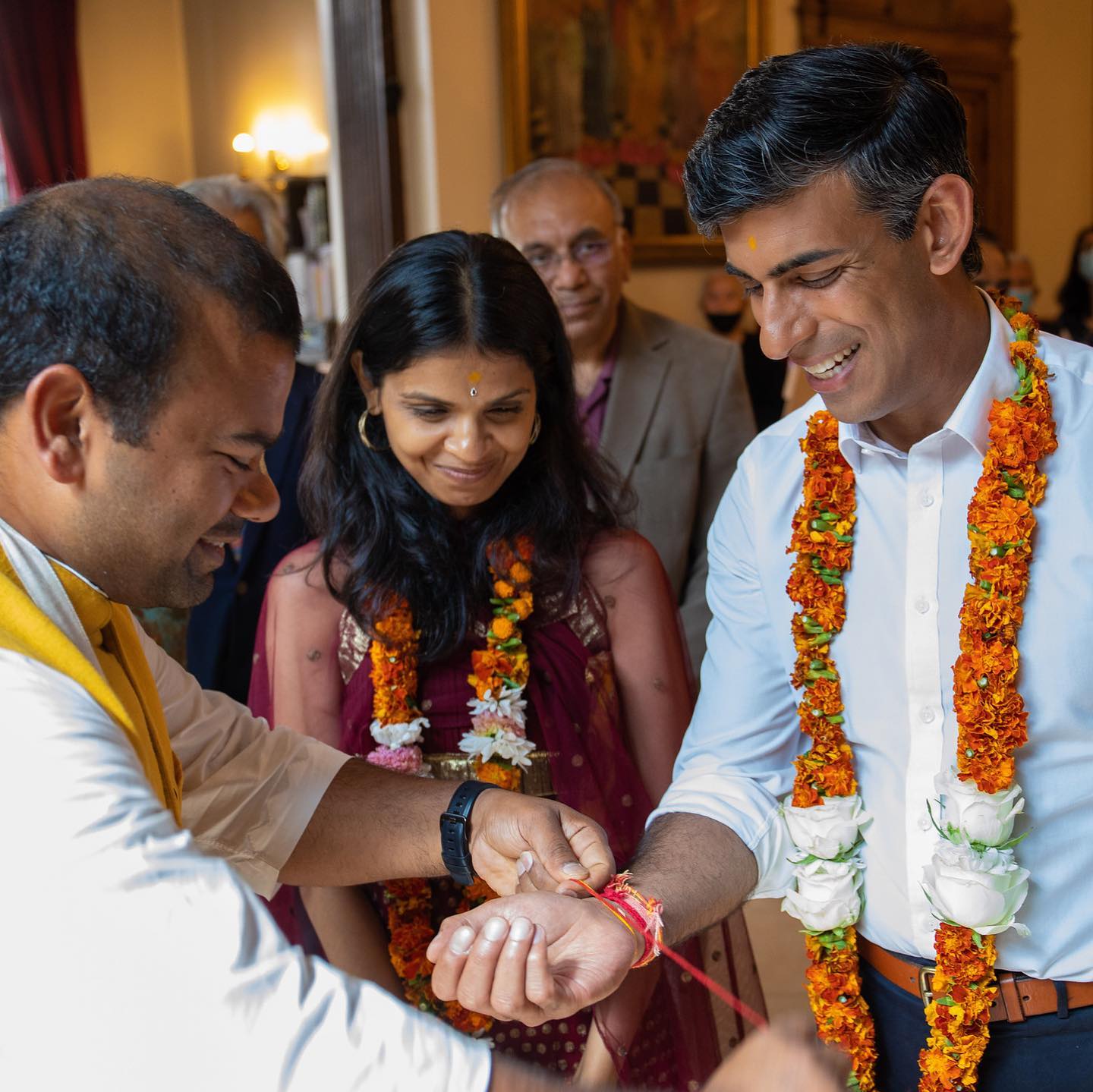Upon winning the British Conservative leadership election on Monday (24 Oct), Rishi Sunak is slated to become the next Prime Minister.
The 42-year-old former finance minister will be the country’s first leader of colour and its youngest in a century.
Road To Prime Minister
In truth, Mr Sunak’s rise as the leader of the Conservative Party (Tory) is not that surprising, all things considered.
After Boris Johnson’s resignation, Mr Sunak was one of the two finalists for the premier position in the previous leadership election, besides Liz Truss.
Let’s clarify this first: general elections and leadership elections are different.
General elections are when all parliamentary seats are up for grabs, and at the end of it, the leader of the political party with the most seats will become the Prime Minister. On the other hand, a leadership election means that the ruling political party has an internal competition/election on who becomes the next leader of their own political party.
In the previous leadership election, Mr Sunak lost to Liz Truss at the last minute because he was caught up in a scandal.

It was revealed that the hedge fund boss turned politician, alongside his wife Akshata Murty – the daughter of Indian billionaire Marayana Murthy – had been evading her taxes on her earnings outside of the United Kingdom using her non-domiciled status.

There had also been videos of Sunak taking money from deprived urban areas to fund other projects, which sparked outrage from the public.
In a time where Britain is sliding into recession due to rising energy and food prices, and the people’s purchasing power is decreasing, you can imagine that these scandals did not fly well.
As reality would prove it, his chances of winning the previous leadership were ruined as Liz Truss stepped up to the plate.
(And boy, what a mistake that was.)
Shortly after Truss declared her intent to resign as prime minister, the leadership election commenced.
Citing that he was unfit to run for Prime Minister (again), Johnson withdrew from the race.
Mr Sunak’s only rival was Penny Mordaunt, but she failed to secure enough support from her Tory MPs, so Mr Sunak was a shoot-in for the next Tory leader.
Thus, on the day of Diwali, it was confirmed that Rishi Sunak would become the next prime minister upon appointment by King Charles.
Sunak’s Credentials
Before Mr Sunak turned into a politician, he was an analyst for Goldman Sachs.
He was then elected as MP for Richmond in North Yorkshire in 2015, which also means that he has only been MP for seven years.
Despite the briefness of his political career, Mr Sunak rose to prominence during the COVID-19 pandemic as Johnson’s finance minister.
He is best known for his furlough payments and his “Eat Out to Help Out” scheme during the pandemic.
Under Finance Minister Sunak, the British government launched a Coronavirus Job Retention Scheme, whereby workers who given mandatory but temporary leave of absence – either because their workplaces had shut down temporarily or there is no need for so much manpower – were given financial help to make up for their sudden loss of income.
This helped to combat the rising unemployment during the pandemic as the wage subsidies ensured that employers could keep their employees on their payroll without being overburdened by the costs of paying their staff.
At its peak, the scheme is said to have supported 8.9 million private sector jobs.
Sunak’s Policies
Thus far, the general opinion about Mr Sunak is that he is more sensible and pragmatic than his predecessors.
This is supported by the fact that he had “predicted” the financial problems that Liz Truss would bring about in her plan to borrow money during an inflation crisis. He was right about this; Truss’ tax cuts and fiscal policies without plans to make up for the loss of government revenue did plunge Britain’s economy into chaos.

He is a supporter of Brexit, and he has long campaigned for deregulation, believing that free ports, areas near ports or airports where goods can be imported or exported without payable tax, can encourage trade.
Mr Sunak acknowledges that the country is faced with a “profound economic crisis”, and he has outlined higher public spending but simultaneously pledged more discipline in government expenditure and to cut waste.
Although he shared a similar view that income taxes can afford to be cut, he believes that such a plan can only be done after the inflation is controlled. In the same vein, the former finance minister believes that it is important to work with the Bank of England to curb the inflation, not worsen it.
Evidently, Mr Sunak has many economic and fiscal plans to implement once he officially steps into Downing Street as the new Prime Minister.
In contrast to Truss and Johnson, Mr Sunak said in August that a trade war with the European Union (EU) is not in Britain’s interests. This is good news, as EU officials will want to work with him on the rising energy costs.
However, the downside to Mr Sunak’s appointment is that he is a supporter of the Northern Ireland protocol bill, which essentially overrides a specific part of original Brexit deal that maintains the fragile status quo of Northern Ireland.
For Ukraine, all is well as long as the British Conservative Party remains in power, since Mr Sunak has pledged that they will continue to help them. The minor difference is that Mr Sunak is not as fervent in his support as Truss.
Political Turmoil
The Conservative Party has been split over ideology for a long time, and this is the kind of party that Mr Sunak is pressed to lead.
Ever since Britain voted to leave the European Union in 2016, it has been locked in a state of perma-crisis, facing one huge problem after another: negotiating the Brexit deal, having to wrangle the COVID-19 pandemic, and now the cost-of-living crisis.
Although the Conservative Party won the 2019 General Election, public confidence is at an all-time low after Britain has faced four Tory Prime Ministers—David Cameron (who called for the Brexit referendum), Theresa May (whose Brexit deal negotiation was her downfall), Boris Johnson (who was brought down by COVID-19 scandals) and Liz Truss.
The less that is said about the latter, who only served for 45 days as prime minister, the better.
The opposition parties have also been calling for another general election, citing that Mr Sunak does not have the democratic mandate to become prime minister.
The labour party’s deputy leader Angela Rayner remarked that Mr Sunak had been crowned prime minister “without him saying a single word about how he would run the country and without anyone having the chance to vote”.
Liberal Democrat leader Ed Davey was much more scathing, saying that the conservative party have, yet again, installed another leader who is out-of-touch with the common masses.
In spite of their criticism, under the UK’s parliamentary political system, Mr Sunak is not beholden to call for another election until January 2025.
Nonetheless, the new premier will have war with different factions, both internal and external, while he tries to carry his agenda through the parliament.
Sunak’s Background
Now this is the interesting part.
Rishi Sunak’s grandparents came from Punjab, a state bordering Pakistan.
His own parents migrated to the UK from East Africa, another region of the world that was once under British colonial rule.
Mr Sunak was born in Southampton in 1980, where his father worked as a general practitioner while his mother ran a pharmacy.
His father-in-law is Narayana Murthy, the founder of Infosys who is otherwise known as the “Bill Gates of India”.
His wife, Akshata Murthy, holds a 0.9% stake in Infosys, which is estimated to be worth about £700 million in the company’s latest annual report.
The couple met in university and got married in 2009. They went on to have two daughters together.

Mr Sunak’s rise to prime minister could not have been timelier; he was declared the new Tory leader on Deepavali and on the 75th year of India’s independence from the British empire after about 200 years of colonial rule.
Which makes it all the more significant that he is Britain’s first leader of colour.
Rishi Sunak’s appointment will be one for the history books, regardless of how his administration fares.
Read Also:
- 56YO Woman, Who’s a Grandma of 3, Marrying Her 19YO Boyfriend
- Bodies of Mother & Son, 92 & 70, Found in a Tampines HDB Unit
- Ong Ye Kung: XBB Wave May Peak Even Earlier Than Expected
- S’pore Actress Jayley Woo is Six Months Pregnant & Will Be Getting Married in Dec
- Man Reportedly Fell 5 Floors Down After His Lorry Crashed into Carpark Railings at Woodlands
Featured Image: Facebook (Rishi Sunak)
Would you be jailed for being half-naked in public? Well, the answer will shock you. Seriously. Watch this to the end and you'll understand:



